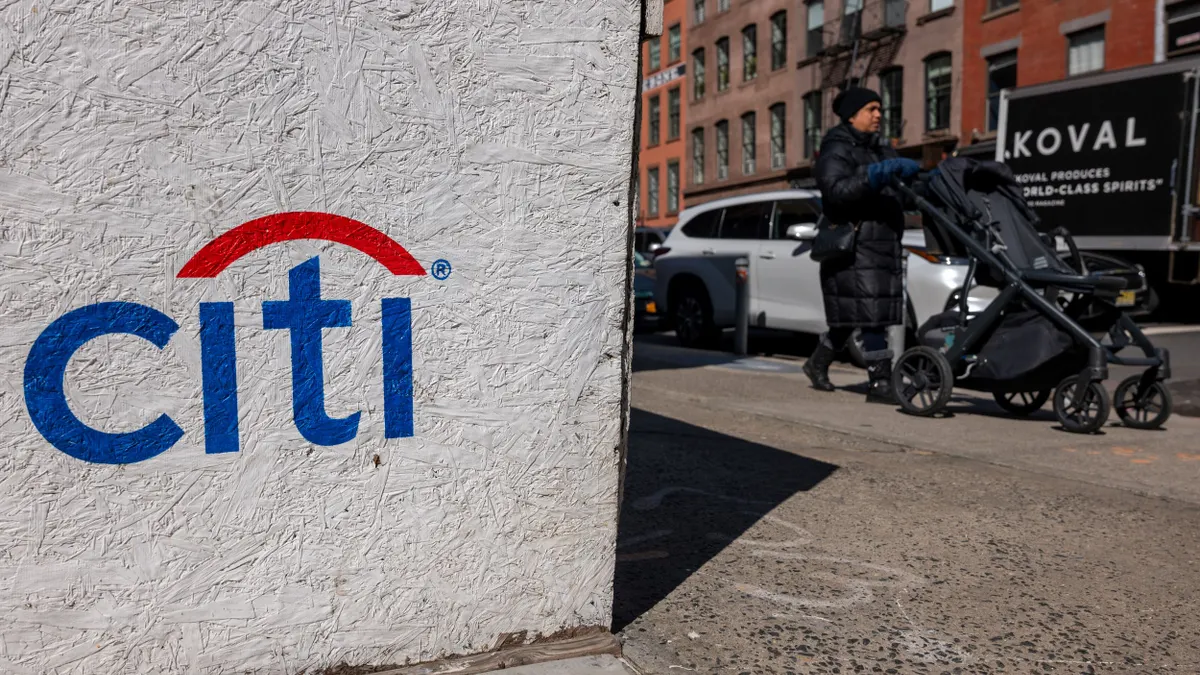Seven states and Washington, D.C., on Tuesday sued the Office of the Comptroller of the Currency (OCC) to invalidate the "true lender" rule, an October measure the regulator said clarifies the roles of fintechs and their partner banks in lending.
Democratic attorneys general in New York, California, Colorado, Massachusetts, Minnesota, New Jersey, North Carolina and D.C. said the rule would let predatory lenders circumvent state caps by charging nationwide the interest rates allowed in the lender's home state.
"The rule seeks to preempt state usury law, infringe on the states' historical police powers and facilitate predatory lending by purporting to halt the ability of the states and courts to apply well-established principles for determining whether a national bank actually fulfills the role of lender," the eight attorneys general said in the suit, filed Tuesday in the U.S. District Court for the Southern District of New York.
The plaintiffs aim to invalidate the rule, arguing it violates the Administrative Procedure Act. They also, in their suit, criticized the timing of the rule, noting it was finalized less than two months after the OCC's initial proposal generated more than 4,000 comments. It also came one week before a presidential election that signaled a change of power — and, perhaps, policy with regard to predatory lending.
A bank will be the "true lender" on loans made in partnership with fintechs if, as of the origination date, it funds the loan or is named the lender in the loan agreement, the OCC specified last fall. Further, if one bank is named the lender in the loan agreement and another bank funds the loan, the former is the true lender.
"Rather than stem the tide of exploitative and predatory loans that trap vulnerable consumers in cycles of debt, the Trump administration wants to open the floodgates by sanctioning schemes that allow the financial services industry to target New Yorkers and paint a bullseye on their backs," New York Attorney General Letitia James said Tuesday in a press release.
The OCC declined to comment on Tuesday's suit. But it may sense a bull's-eye of its own.
Since late December, the agency has increasingly found itself the target of legal action and complaints from state officials, interest groups, advocates for the entities it oversees — and even suggestions from fellow regulators. If the first two weeks or so are any indicator, this may be a winter filled with discontent for the OCC.
The notion that time is against the OCC has seemed to follow it throughout much of the past year. The agency defended its issuing of a revamped Community Reinvestment Act in May — without support from fellow regulators and shortly before former Comptroller Joseph Otting announced his resignation. President Donald Trump has nominated Otting's successor, Brian Brooks, to a full five-year term. For that to stick, the full Senate must approve him before Jan. 20.
Tuesday's suit from state attorneys general marks the second time in as many days the OCC has drawn flak for its perceived rush to finalize regulations. The Bank Policy Institute (BPI), in its Monday request that the OCC withdraw its proposed "fair access" rule, said the agency's truncated 45-day comment period left little time for interested parties to lay out their concerns.
The November proposal would prohibit banks with more than $100 billion in assets from denying services such as lending and payment processing to firearms companies, energy firms and other businesses whose missions could raise ridicule from a social standpoint. It came as Republican lawmakers from energy-producing states lobbied the Trump administration to see whether the federal government can force banks to provide financing to oil and gas companies, or punish banks for not doing so.
In a letter on the comment period's closing day, the BPI questioned the fair access rule's legal basis, arguing the proposal could upend banks' business models, replacing one that respects "each bank's own business and risk management decisions and the free and fair operation of the highly competitive market in which banks compete — with one in which the OCC would directly intervene in the market to dictate to whom financial services must be provided, on what terms and with what competitive effect."
The fair access proposal yielded several letters of support from firearms industry advocates. But it also drew a comment letter from a group of congressional Democrats, including Sen. Brian Schatz of Hawaii.
"This proposed rule directly undermines the OCC's responsibility to ensure a safe and sound banking sector," Schatz said, according to Bloomberg. "It is extremely troubling that a federal regulator is using its supervisory authority to pressure banks to finance projects the banks themselves have deemed too risky."
Bryan Hubbard, an OCC spokesman, told Bloomberg in a statement that the agency is "considering all of the stakeholders' comments."
The winter surge of complaints against the OCC began Dec. 22, the season's second day, when the Conference of State Bank Supervisors sued to block the fintech Figure's application for a banking charter with the regulator.
But apparently, even fellow regulators are voicing an opinion that the OCC may not be the best-suited backstop for charters.
A Consumer Financial Protection Bureau (CFPB) task force is recommending, among more than 100 suggestions, that Congress consider letting that agency, rather than the OCC, issue federal charters to fintech companies engaged in lending, payments or remittances, American Banker reported Tuesday. The panel asserted that the CFPB's consumer protection mission better positions it to be the regulator of record, ahead of the OCC, which may default to protecting its own rival national bank charter.
"There is an opportunity for the CFPB to be an even more powerful force to promote consumer protection and welfare, to be a chartering entity for fintechs," Todd Zywicki, the task force's chair, told American Banker. "It's a logical place to do it and it's natural for it to be done on a national basis."
The report prompted Brooks to issue a statement Wednesday defending the siloed setup.
“In its wisdom, Congress in the Dodd-Frank Act separated chartering and prudential supervision from consumer protection enforcement, assigning chartering authority to the OCC and specific consumer protection enforcement authority to the CFPB,” he wrote. “The additional protections implemented following the last financial crisis put two cops on the beat and separated those responsibilities so neither would be compromised in service to the other.
“That dynamic should be preserved so that the CFPB continues to enforce compliance with enumerated financial consumer protection laws for the financial companies designated by the Dodd-Frank Act, while at the same time avoiding the creation of a prudential supervision gap that could lead to serious safety and soundness risks,” he continued.
Brooks did, however, appear to agree with the CFPB’s assertion that federal charters for fintechs must, in the acting OCC chief’s words, “effectively, efficiently, and safely serve the financial needs of consumers across the nation under a single uniform set of rules.”
The task force's report generated less favorable responses from lawmakers and consumer advocates. Sen. Sherrod Brown, D-OH, the ranking member on the Senate Banking Committee, on Tuesday called the task force "just a pretext" by the Trump administration to de-fang regulations.
"The Taskforce members have a history of undermining the CFPB and work at law firms representing payday lenders, banks and other corporations with a direct, financial interest in rolling back consumer protections," Brown said in a statement posted on his website. "This Taskforce provided the Trump administration with a report that fulfills its pro-Wall Street, deregulatory agenda, but it is neither credible nor legitimate. Congress can and should give no weight or consideration to this propaganda masquerading as independent, agency research."
Carter Dougherty, a spokesperson for the consumer advocate Americans for Financial Reform, told American Banker the report wouldn't "amount to much more than a biodegradable doorstop."
"As one would expect from a group stacked with industry shills, it is larded with hollow assurances that if we simply trust Wall Street, and increasingly, Big Tech, that all will be well," Dougherty said.



















